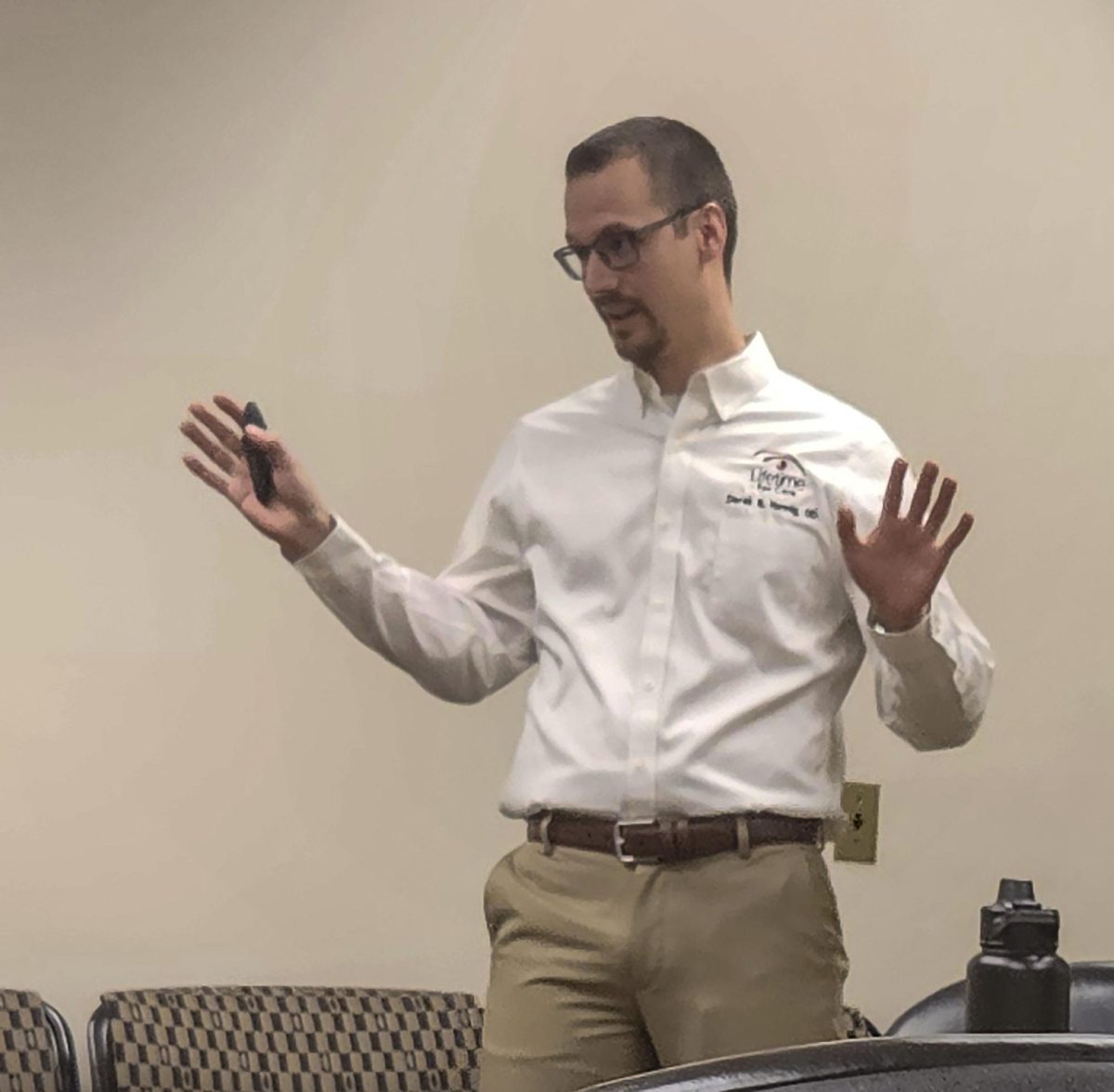On April 8, Charleston will experience a 99% totality solar eclipse.
Dr. Derek Hennig led a presentation on how to safely view the upcoming solar eclipse Monday afternoon on the fourth floor of Booth Library.
The presentation comes a week before the highly-anticipated solar eclipse. This eclipse will be the first solar eclipse in the United States since Aug. 21, 2017.
Hennig opened the presentation with how the eyes perceive color and light. He currently works as an optometrist in Charleston. He broke down structure specifics of the eyes, such as how many nerves the retina has.
“The eye is the window to the rest of the body,” Hennig said during the presentation.
Around halfway through the event, the presentation’s main theme shifted to how the eyes perceive sunlight.
Hennig used the analogy of attempting to burn an ant with sunlight using a magnifying glass to how direct sunlight can affect a person’s retinas.
He described the condition of solar retinopathy, the official name for the condition where the sun burns a person’s retinas. Even looking at the sun, particularly during an eclipse, for a few seconds can burn one’s retinas.
A person does not feel pain while this happens, and the damage is permanent.
Hennig also discussed other eye conditions caused by sun damage, such as cataracts. He recommended using UV-approved sunglasses during regular sunlight to mitigate long-term effects.
He described sunglasses as “sunscreen for your eyes.”
To safely look at the eclipse, Hennig urged viewers to only use approved eclipse glasses. Approved eclipse glasses will meet the ISO-12312-2 standard, according to the American Astronomical Society.
Their website also has a list of approved manufacturers and the retail stores where the eclipse glasses are sold.
Hennig urged those who want to view the eclipse to do their research on approved manufacturers for eclipse glasses. He also warned of potential scams involving the production of counterfeit eclipse viewing glasses.
A person can wear eclipse glasses over their regular glasses. He also said not to use any eclipse glasses with filters that are more than three years old. He advised not to look at the eclipse for more than ten seconds at a time, even with eclipse glasses.
“You can very easily do permanent damage to your eyes and retina health, which can lead to permanent vision loss,” he said. “Once it’s done, it’s done.”
Jacob Hamm can be reached at 581-2812 or at [email protected].










































